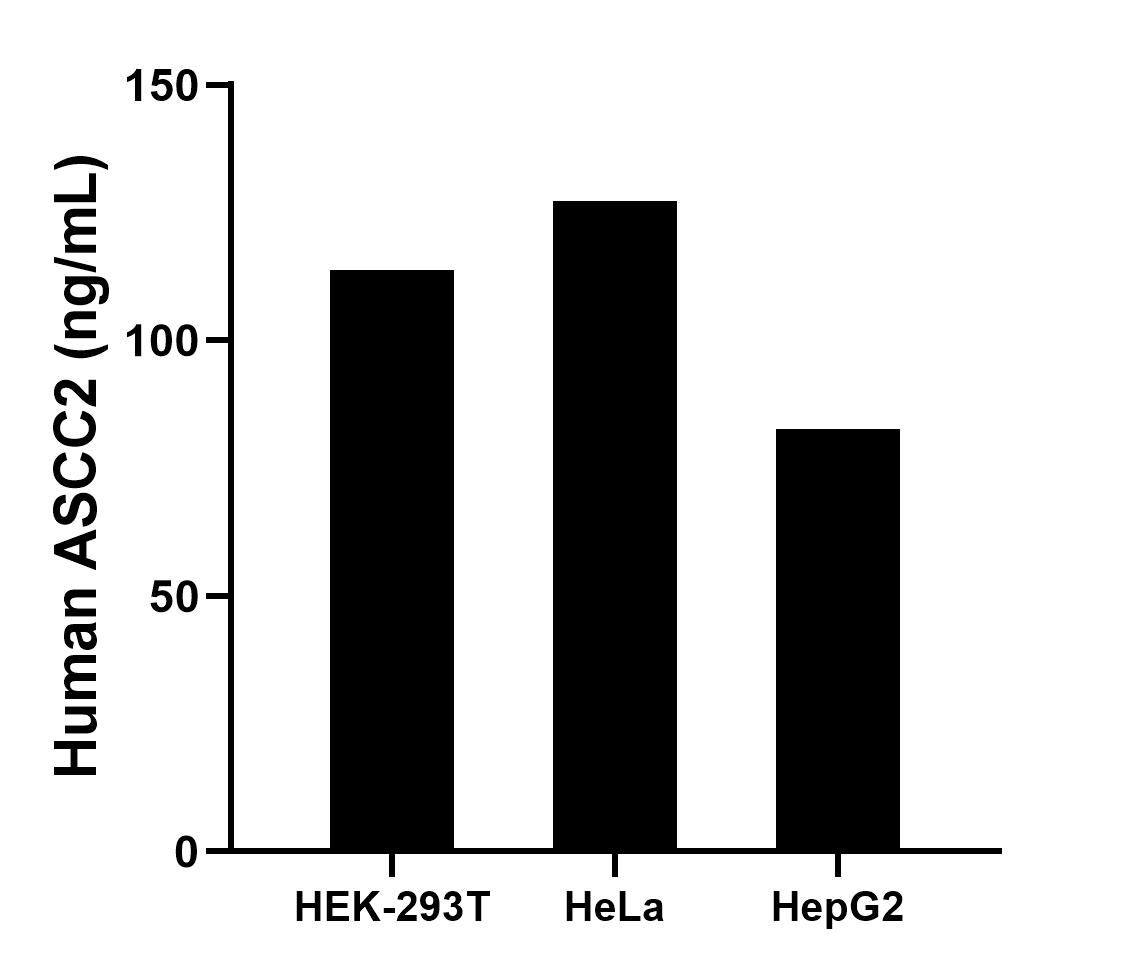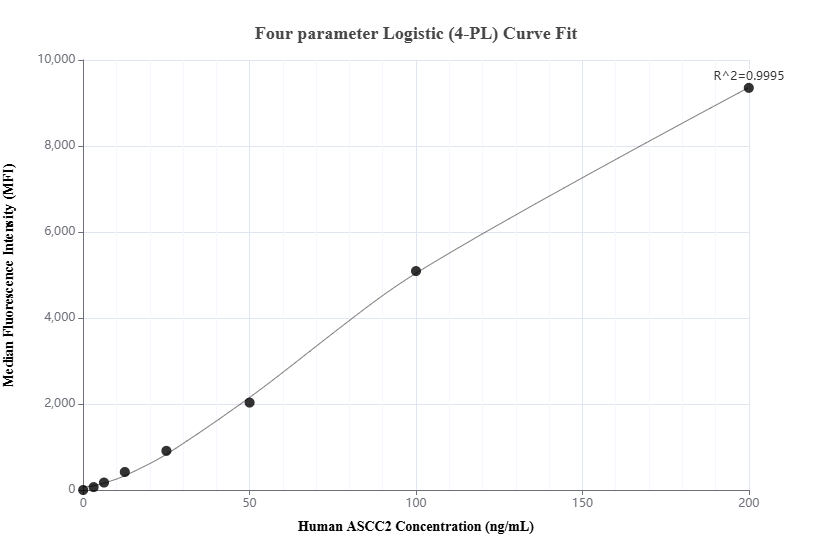验证数据展示
产品信息
86086-2-PBS targets ASCC2 as part of a matched antibody pair:
MP02784-1: 86086-1-PBS capture and 86086-2-PBS detection (validated in Cytometric bead array)
Unconjugated rabbit recombinant monoclonal antibody in PBS only (BSA and azide free) storage buffer at a concentration of 1 mg/mL, ready for conjugation. Created using Proteintech’s proprietary in-house recombinant technology. Recombinant production enables unrivalled batch-to-batch consistency, easy scale-up, and future security of supply.
This conjugation ready format makes antibodies ideal for use in many applications including: ELISAs, multiplex assays requiring matched pairs, mass cytometry, and multiplex imaging applications.Antibody use should be optimized by the end user for each application and assay.
| 经测试应用 | IF/ICC, Cytometric bead array, Indirect ELISA Application Description |
| 经测试反应性 | human |
| 免疫原 |
CatNo: Ag2100 Product name: Recombinant human ASCC2 protein Source: e coli.-derived, PGEX-4T Tag: GST Domain: 408-757 aa of BC025368 Sequence: RRKATDAKDPSVIEEPNGEPNGVTVTAEAVSQASSHPENSEEEECMGAAAAVGPAMCGVELDSLISQVKDLLPDLGEGFILACLEYYHYDPEQVINNILEERLAPTLSQLDRNLDREMKPDPTPLLTSRHNVFQNDEFDVFSRDSVDLSRVHKGKSTRKEENTRSLLNDKRAVAAQRQRYEQYSVVVEEVPLQPGESLPYHSVYYEDEYDDTYDGNQVGANDADSDDELISRRPFTIPQVLRTKVPREGQEEDDDDEEDDADEEAPKPDHFVQDPAVLREKAEARRMAFLAKKGYRHDSSTAVAGSPRGHGQSRETTQERRKKEANKATRANHNRRTMADRKRSKGMIPS 种属同源性预测 |
| 宿主/亚型 | Rabbit / IgG |
| 抗体类别 | Recombinant |
| 产品类型 | Antibody |
| 全称 | activating signal cointegrator 1 complex subunit 2 |
| 别名 | ASC-1 complex subunit p100, ASC1P100, RQT3 |
| 计算分子量 | 757 aa, 86 kDa |
| 观测分子量 | 90-100 kDa |
| GenBank蛋白编号 | BC025368 |
| 基因名称 | ASCC2 |
| Gene ID (NCBI) | 84164 |
| 偶联类型 | Unconjugated |
| 形式 | Liquid |
| 纯化方式 | Protein A purification |
| UNIPROT ID | Q9H1I8 |
| 储存缓冲液 | PBS only, pH 7.3. |
| 储存条件 | Store at -80°C. The product is shipped with ice packs. Upon receipt, store it immediately at -80°C |
背景介绍
ASCC2, also known as ASC1p100, is a subunit of the activating signal cointegrator 1 complex. ASCC2 plays a role in DNA damage repair as a component of the ASCC complex, recruiting ASCC3 and ALKBH3 to sites of DNA damage by binding to polyubiquitinated proteins that have 'Lys-63'-linked polyubiquitin chains. Additionally, it is part of the ASC-1 complex that enhances NF-kappa-B, SRF, and AP1 transactivation(PMID: 29144457, 12077347).




